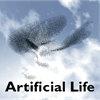Of Typewriters and PCs: How the Complication of Computers Limits Us and What to Do About It
IF 1.5
4区 计算机科学
Q4 COMPUTER SCIENCE, ARTIFICIAL INTELLIGENCE
引用次数: 0
Abstract
PCs are complicated. Yet, being generally more effective, they have replaced typewriters in everyday life. Because of their complications, many of us wonder at PCs as if they were mysterious ghosts in the machine: entities with powers we cannot explain or control, almost supernatural. I analyze how this increase in technological complication may be limiting our society at two levels, one economic and one scientific, and I discuss how the field of Artificial Life (ALife) can attempt to rescue it. At the economic level, there is evidence that computers, being complicated, slow labor productivity rather than increasing it (e.g., maintenance, malware, distractions). Computers are also the subject of debate surrounding technological unemployment and elite overproduction. I advocate for ALife to focus on minimally intrusive developments to our everyday work and to occupy unfilled economic niches, like xenobots or bacterial biofilms. At the scientific level, the surge in artificial intelligence has resulted in many complex algorithms that mimic the cognition happening in brains: Even their creators struggle to make sense of them. I advocate for ALife to focus more on basal forms of cognition, cognition that requires as little “brain” as possible, potentially none—algorithms that think through their bodies, stripped of any superfluous complications, just like typewriters. Ultimately, my goal is for the reader to ask themselves what values should drive ALife.《关于打字机和个人电脑:电脑的复杂性如何限制了我们,我们该怎么办》
个人电脑很复杂。然而,由于效率普遍更高,它们在日常生活中已经取代了打字机。由于它们的复杂性,我们中的许多人对pc感到好奇,仿佛它们是机器中的神秘幽灵:拥有我们无法解释或控制的力量,几乎是超自然的实体。我分析了这种技术复杂性的增加如何在两个层面上限制我们的社会,一个是经济层面,一个是科学层面,我讨论了人工生命领域如何试图拯救它。在经济层面上,有证据表明,复杂的计算机减缓了劳动生产率,而不是提高了劳动生产率(例如,维护、恶意软件、干扰)。计算机也是围绕技术性失业和精英生产过剩展开辩论的主题。我主张ALife专注于对我们日常工作的干扰最小的发展,并占据未被填补的经济利基,如异种机器人或细菌生物膜。在科学层面上,人工智能的迅猛发展催生了许多复杂的算法,这些算法模仿了大脑中的认知过程:就连它们的创造者也难以理解它们。我主张人工智能更多地关注基本形式的认知,这种认知需要尽可能少的“大脑”,可能没有算法,通过他们的身体思考,剥夺了任何多余的复杂性,就像打字机一样。最终,我的目标是让读者问自己,什么价值观应该驱动我们的生活。
本文章由计算机程序翻译,如有差异,请以英文原文为准。
求助全文
约1分钟内获得全文
求助全文
来源期刊

Artificial Life
工程技术-计算机:理论方法
CiteScore
4.70
自引率
7.70%
发文量
38
审稿时长
>12 weeks
期刊介绍:
Artificial Life, launched in the fall of 1993, has become the unifying forum for the exchange of scientific information on the study of artificial systems that exhibit the behavioral characteristics of natural living systems, through the synthesis or simulation using computational (software), robotic (hardware), and/or physicochemical (wetware) means. Each issue features cutting-edge research on artificial life that advances the state-of-the-art of our knowledge about various aspects of living systems such as:
Artificial chemistry and the origins of life
Self-assembly, growth, and development
Self-replication and self-repair
Systems and synthetic biology
Perception, cognition, and behavior
Embodiment and enactivism
Collective behaviors of swarms
Evolutionary and ecological dynamics
Open-endedness and creativity
Social organization and cultural evolution
Societal and technological implications
Philosophy and aesthetics
Applications to biology, medicine, business, education, or entertainment.
 求助内容:
求助内容: 应助结果提醒方式:
应助结果提醒方式:


